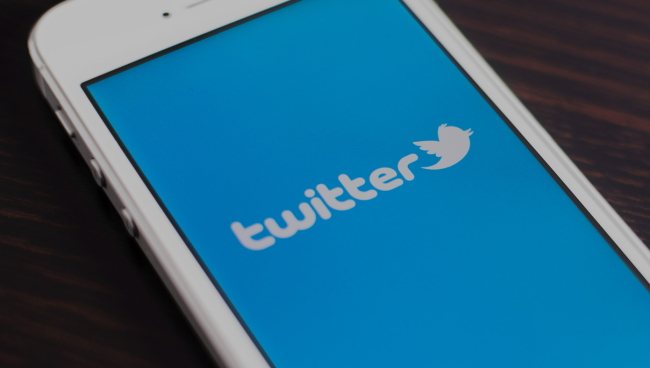WASHINGTON, (AFP) -- Successive cyber attacks took large portions of the internet off line on Friday, rendering major companies including Twitter and Netflix inaccessible to millions of users in the United States and elsewhere.
Multiple times in a single day, the attacks incapacitated a crucial piece of internet infrastructure, frustrating or outright blocking access to websites and exposing vulnerabilities in the overall internet network.
It also commanded the attention of top US security agencies including the Department of Homeland Security.
“DHS and the FBI are aware and are investigating all potential causes” of the outages, a spokeswoman said.
The outages left internet users unable to post messages, shop, watch videos and play games online for parts of the day.
A Twitter user, @tylerthebadwolf, expressed frustration once he regained access.

Repeated attacks
“Holy moly! I haven’t been able to get in here all day! Is there a hashtag for #InternetOutage 2016 yet??” he tweeted.
Dynamic Network Services Inc, which routes and manages internet traffic, said that at about 1100 GMT on Friday that its infrastructure had been hit by a distributed denial of service, or DDoS, attack in the eastern part of the United States.
The company claimed to have resolved the matter within about two hours but toward 1600 GMT was again responding to an attack.
“Our engineers are continuing to investigate and mitigate several attacks aimed against the Dyn Managed DNS infrastructure,” the company, known as Dyn, said on its website.
Affected websites included Reddit, the crafts marketplace Etsy and the software developer site Github, according to media reports. Others reportedly affected include CNN, The Guardian, Wired, HBO and People as well as the money transfer service PayPal.
A map published by the website downdetector.com initially showed service interruptions across much of the US east coast and in Texas.
However later Friday the affected areas had spread to parts of the Midwest and California. Similar maps for Netflix and Twitter showed areas of outage in Europe.
Amazon Web Services, which hosts some of the most popular sites on the internet, including Netflix and the homestay network Airbnb, said that it had resolved problems by 1310 GMT only to begin addressing similar problems three hours later in a different region.
By late in the day the situation appeared to be stabilizing.
Crucial internet infrastructure
Domain name servers are a crucial element of internet infrastructure, converting numbered Internet Protocol addresses into the domain names that allow users to connect to internet sites.
DDoS attacks involve flooding websites with more traffic than they can handle, making them difficult to access or taking them offline entirely.
Attackers can use them for a range of purposes, including censorship, protest and extortion. The loose-knit hacktivist network Anonymous in 2010 targeted the DNS provider EveryDNS among others as retribution for efforts to block the anti-secrecy organization WikiLeaks.
Friday’s incident immediately underscored the comingled dependencies of large portions of the internet, with multiple brand-name companies and their users affected by an attack on a single company.
The attacks took on added significance, experts said, as the number of ordinary objects used by consumers go online, joining the so-called “internet of things.”
Roland Dobbins, principal engineer at the networks security company Arbor Networks, told AFP on Friday that, though it was spectacular, the attack was a constant and relentless fact of life on the internet.
“It’s like a combination of the Wild West, Normandy and the Battle of the Bulge on the internet every day,” he said.
He added that the attack’s scale did not necessarily mean the attackers had large resources.
“It does not require a nation-state to launch a DDoS attack of this magnitude or impact,” he said. “When it comes to DDoS attacks, states are just another player.”
According to Verisign, the number of DDoS attacks rose 75 percent year-on-year in the second quarter of this year.
James Scott, co-founder, of the Institute for Critical Infrastructure Technology, said the attacks demonstrated well-known vulnerabilities of the internet.
“Simply put, the internet in its original and modern form was not designed with security in mind,” he told AFP.
“Consequently, the DNS servers and other critical infrastructure supporting the global internet have always been tantalizing targets to malicious adversaries intent on disrupting services.”







![[Graphic News] More Koreans say they plan long-distance trips this year](http://res.heraldm.com/phpwas/restmb_idxmake.php?idx=644&simg=/content/image/2024/04/17/20240417050828_0.gif&u=)
![[KH Explains] Hyundai's full hybrid edge to pay off amid slow transition to pure EVs](http://res.heraldm.com/phpwas/restmb_idxmake.php?idx=644&simg=/content/image/2024/04/18/20240418050645_0.jpg&u=20240419100350)





![[From the Scene] Monks, Buddhists hail return of remains of Buddhas](http://res.heraldm.com/phpwas/restmb_idxmake.php?idx=652&simg=/content/image/2024/04/19/20240419050617_0.jpg&u=20240419175937)

![[KH Explains] Hyundai's full hybrid edge to pay off amid slow transition to pure EVs](http://res.heraldm.com/phpwas/restmb_idxmake.php?idx=652&simg=/content/image/2024/04/18/20240418050645_0.jpg&u=20240419100350)

![[Today’s K-pop] Illit drops debut single remix](http://res.heraldm.com/phpwas/restmb_idxmake.php?idx=642&simg=/content/image/2024/04/19/20240419050612_0.jpg&u=)